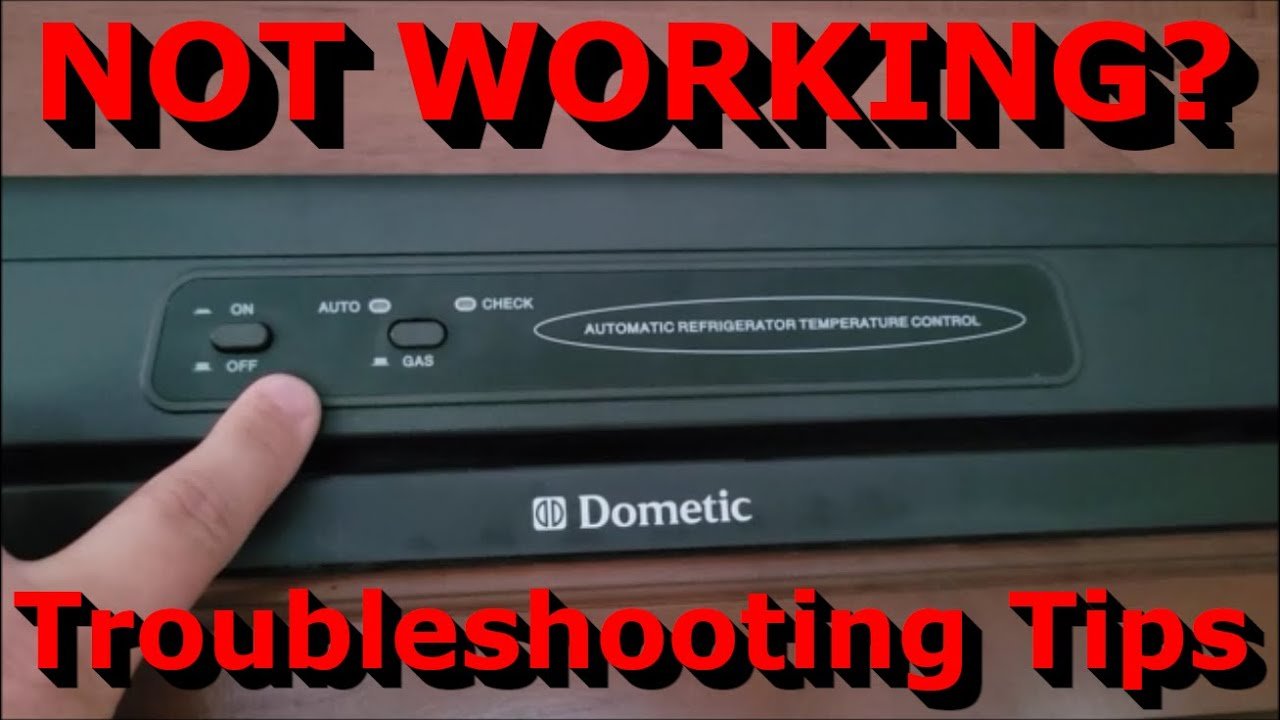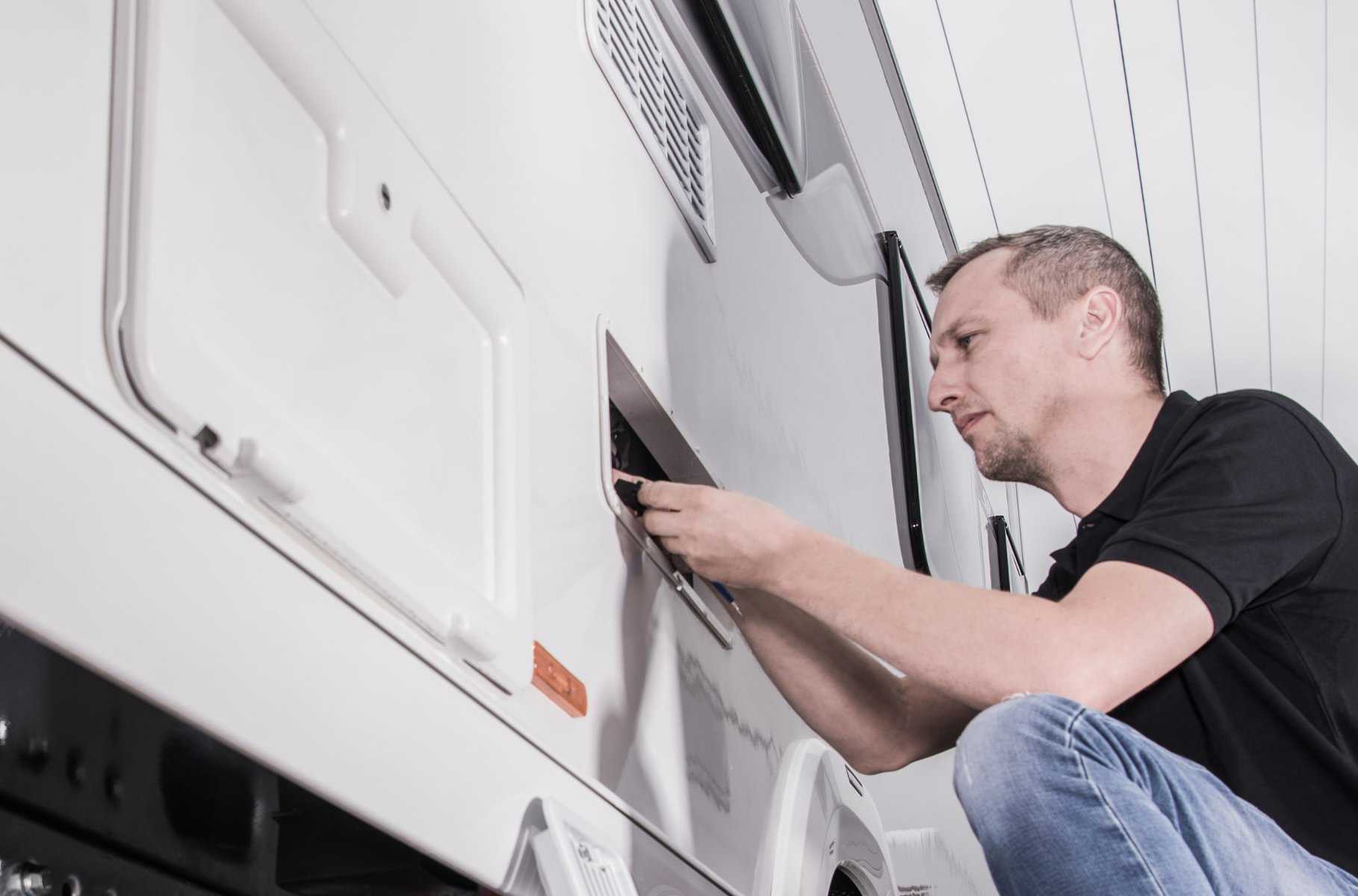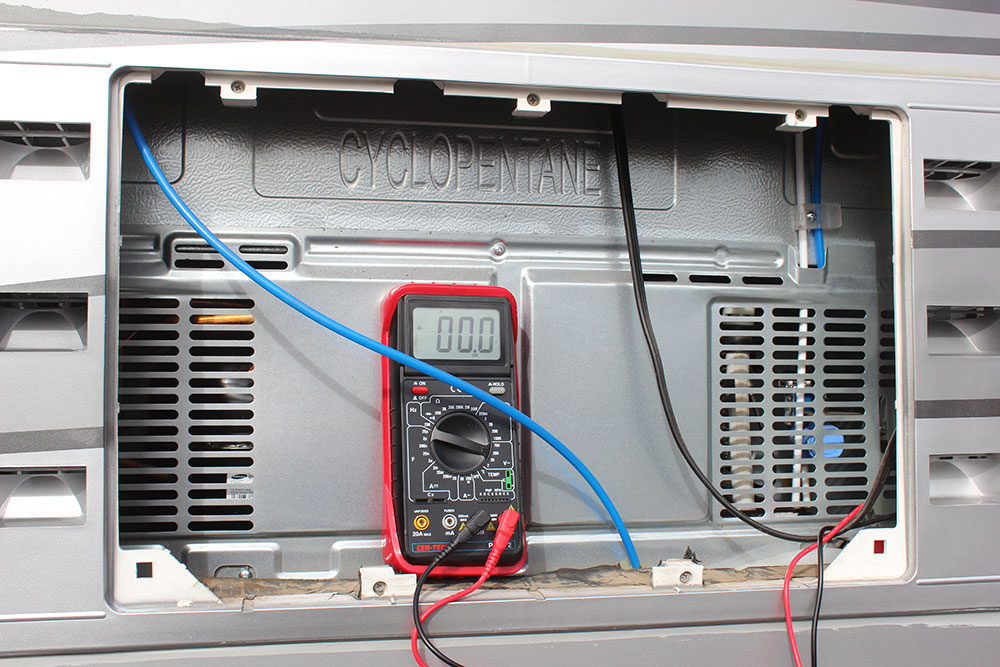
If you are experiencing problems with your RV refrigerator, troubleshooting is essential. In this guide, we will explore common issues and solutions to help you get your refrigerator up and running smoothly again.
When it comes to RV travel, having a functioning refrigerator is crucial for storing food and keeping it fresh. However, like any appliance, RV refrigerators can encounter problems from time to time. Whether it’s a lack of cooling, unusual noises, or power supply issues, understanding how to troubleshoot these problems can save you time, money, and frustration.
We will provide you with practical tips and solutions to common RV refrigerator problems, ensuring your food stays cold and your trip goes smoothly.

Credit: letsrv.com
Common Rv Refrigerator Problems
Having trouble with your RV refrigerator? Learn how to troubleshoot common problems and keep your food cool on the road.
Refrigerator Not Cooling Properly
One of the most common RV refrigerator problems is when it fails to cool properly. This can be a frustrating situation, especially when you’re in the middle of a camping trip and relying on your fridge to keep your food fresh and your beverages cold. There are several potential causes for this issue:
- Insufficient power supply: Ensure that your RV has a consistent and adequate power source. Check the electrical connections and the circuit breaker to make sure everything is working as it should.
- Improper temperature settings: Check the temperature settings inside the fridge. It’s possible that the thermostat has been accidentally adjusted, causing the cooling to be insufficient. Adjust it to the recommended temperature.
- Blockage of vents: Make sure the vents on the refrigerator are not blocked by any objects. Proper ventilation is crucial for the refrigerator’s cooling system to function effectively.
- Dirty condenser coils: Over time, the condenser coils can accumulate dust and debris, reducing their cooling efficiency. Clean the coils using a soft brush or vacuum cleaner to remove any buildup.
Fridge Making Strange Noises
If your RV refrigerator is making strange noises, it can be a cause for concern. These noises can vary from buzzing and humming to clicking or gurgling sounds. Here are a few potential reasons why your fridge might be making these unusual noises:
- Inadequate leveling: Ensure that your RV is parked on a level surface. If the refrigerator is not leveled properly, it can cause the cooling unit to make noises. Use a bubble level to check and adjust the alignment if necessary.
- Loose components: Check for any loose or vibrating components in the refrigerator. Tighten or secure them as needed to eliminate any unnecessary noises.
- Faulty fan motor: The fan motor inside the refrigerator can sometimes become faulty or worn out, resulting in strange noises. If you suspect this to be the issue, it’s recommended to seek professional assistance for repairs or replacements.
Fridge Not Running On Gas
If your RV refrigerator is not running on gas, it can be inconvenient, especially if you’re camping in an area without electrical hookups. Here are a few troubleshooting steps you can take:
- Gas supply: Ensure that there is an adequate gas supply to the refrigerator. Check the gas valves and verify that they are open and functioning correctly. If necessary, refill or replace the gas cylinders.
- Gas ignition issues: Check the ignition system of your RV refrigerator. It’s possible that the pilot light or igniter is not functioning properly. Consult the manufacturer’s manual for instructions on troubleshooting or consider reaching out to a professional for assistance.
- Ventilation: Ensure that the ventilation system for the gas refrigerator is unobstructed. Proper airflow is crucial for the gas combustion process. Remove any obstacles around the vents or flue to improve ventilation.
By troubleshooting these common RV refrigerator problems, you can increase the chances of resolving the issues quickly and efficiently. However, if the problems persist or escalate, don’t hesitate to seek professional help to avoid any further damage to your RV refrigerator.

Credit: www.rvrepairclub.com
How To Troubleshoot Refrigerator Not Cooling Properly
Having a properly functioning RV refrigerator is essential for a comfortable camping experience. However, it can be frustrating when you realize that your refrigerator is not cooling properly. In this article, we will discuss how to troubleshoot refrigerator not cooling properly issues and provide solutions to help you get your RV refrigerator back in working order.
Check Power Source And Connections
The first step in troubleshooting your RV refrigerator is to check the power source and connections. Make sure that the refrigerator is properly plugged in and that the power source is working. You can do this by plugging in another electronic device to the same power source and see if it works. Additionally, check the power cord for any damage or loose connections. If you find any issues, they should be addressed and fixed before continuing with the troubleshooting process.
Inspect For Blockages In Vents And Airflow
Another common cause of an RV refrigerator not cooling properly is blocked vents or poor airflow. Inspect the vents both inside and outside the refrigerator. Ensure that they are not obstructed by any objects or debris. Clear away any dust or dirt buildup that may be hindering proper airflow. Additionally, check if the fans inside the refrigerator are running smoothly. If you notice any blockages or issues, clean or fix them accordingly to improve the airflow.
Ensure Proper Temperature Settings
Improper temperature settings can also lead to your RV refrigerator not cooling properly. Check the temperature settings on your refrigerator and make sure they are set to the appropriate level. The recommended temperature for an RV refrigerator is around 37 to 40 degrees Fahrenheit. If the settings are too low or too high, adjust them accordingly. Keep in mind that it may take some time for the refrigerator to reach the desired temperature after you make adjustments.
In conclusion, troubleshooting an RV refrigerator not cooling properly is a step-by-step process. Start by checking the power source and connections, then inspect for blockages in vents and airflow, and finally ensure proper temperature settings. By following these steps, you can address common issues and hopefully get your RV refrigerator back to cooling properly for a stress-free camping trip.
Fixing Strange Noises Coming From The Fridge
Is your RV refrigerator making strange noises? Don’t ignore it! Strange noises can be an indication of underlying issues that, if left unaddressed, may lead to bigger problems down the road. In this section, we will guide you on how to identify the source of the noise, clean or replace faulty fans or motors, and address any loose or damaged components.
Identify The Source Of The Noise
Before jumping into any fixes, it is important to determine where the noise is coming from. This will help you pinpoint the specific problem area and save time and effort. Start by carefully listening to the noise while the refrigerator is running. Is it a humming sound? A rattling noise? Or perhaps a screeching sound?
Once you have identified the type of noise, open the refrigerator compartment and inspect the different components. Look out for loose or damaged parts, such as loose fan blades or loose motor mounts, that may be causing the noise. Additionally, check the condenser coils at the back of the refrigerator for any debris or obstructions that could be affecting its performance.
Clean Or Replace Faulty Fans Or Motors
If you have determined that the noise is coming from the fans or motors, it is time to take action. Start by cleaning them to remove any accumulated dirt or grime that may be causing the noise. Use a soft brush or compressed air to gently clean the blades of the fans or the surface of the motors. It is important to turn off the refrigerator and disconnect the power supply before attempting any cleaning or repairs.
If cleaning doesn’t solve the issue, it may be necessary to replace the faulty fans or motors. Consult your RV refrigerator’s manual or contact the manufacturer for specific instructions on how to replace these components. Remember to purchase the correct replacement parts to ensure compatibility and optimal performance.
Address Any Loose Or Damaged Components
Loose or damaged components can also contribute to strange noises coming from the refrigerator. Check all the internal and external components for any signs of looseness or damage. This may include screws, brackets, hinges, or seals. Tighten any loose screws or replace any damaged components to eliminate the noise.
If the noise persists after addressing these issues, it is recommended to seek professional help. An experienced technician will be able to diagnose the problem more accurately and provide the necessary repairs or replacements.

Credit: www.youtube.com
Solving Issues With Running The Fridge On Gas
Running your RV refrigerator on gas can be a convenient and efficient way to keep your food cool while you’re on the road. However, like any other appliance, there may come a time when you encounter problems. In this section, we will explore the common issues you might face when running the fridge on gas and how to troubleshoot them effectively.
Check Gas Supply And Regulator
One of the first things you should do when experiencing problems with your RV refrigerator running on gas is to check the gas supply and regulator. A faulty or inadequate gas supply can lead to poor performance or no cooling at all. To ensure that the gas supply and regulator are working properly, follow these steps:
- Inspect the gas supply line for any visible leaks or damages. If you notice any issues, it’s crucial to address them before proceeding.
- Next, check the gas regulator. Ensure that it is securely connected and not showing any signs of damage or wear. If you suspect a problem, consider replacing it.
- Finally, verify that the gas tank is full or has enough fuel to operate the refrigerator. If the tank is low, refill it accordingly.
Verify Proper Burner And Ignition Operation
The burner and ignition system are key components for running the fridge on gas. If there are issues with them, it can prevent proper cooling. To verify their operation, follow these steps:
- Inspect the burner for any signs of clogs, debris, or corrosion. Remove any obstructions and ensure it is clean.
- Check the electrode and spark ignitor (if applicable) for proper positioning and functionality. Clean or adjust them as needed.
- Ensure that the gas valve is open and the pilot light or flame ignites properly. If the flame is weak or inconsistent, it may require cleaning or adjustment.
Clean Or Adjust Gas Valve
If the gas valve is not properly adjusted or becomes dirty over time, it can cause issues with the fridge’s performance. Here’s what you can do:
- Turn off the gas supply and disconnect it from the refrigerator.
- Remove the gas valve and carefully clean it using a soft brush or compressed air. Pay attention to the valve opening and ensure it is free from any debris.
- If cleaning the valve does not resolve the issue, you may need to adjust it. Consult your refrigerator’s manual or seek professional assistance to ensure proper adjustment.
By following these troubleshooting steps, you should be able to identify and resolve common issues when running your RV refrigerator on gas. Remember to always prioritize safety and consult a professional if you’re unsure about any aspect of the troubleshooting process.
Frequently Asked Questions On Troubleshooting Rv Refrigerator Problems
How Do I Fix A Rv Refrigerator That Is Not Cooling Properly?
If your RV refrigerator is not cooling properly, there are a few troubleshooting steps you can take. Check the power source to ensure it’s connected properly. Clean the condenser coils and ensure they are not blocked. Check the temperature settings and adjust if needed.
If the problem persists, it may be time to call a professional for further inspection.
Why Is My Rv Refrigerator Making Unusual Noises?
If your RV refrigerator is making unusual noises, it could indicate a problem. Common causes of fridge noises include a loose or worn fan motor, ice build-up, or a faulty compressor. Check for any visible issues, such as loose parts or ice accumulation, and try defrosting the freezer.
If the noises continue, it’s recommended to seek professional assistance to diagnose and fix the issue.
What Should I Do If My Rv Refrigerator Is Leaking Water?
A leaking RV refrigerator can be concerning, but there are steps you can take to address the issue. First, check the drain pan and make sure it’s properly positioned and not clogged. Inspect the door seals for any damage or gaps and replace if necessary.
If the problem persists, it’s advisable to contact a professional to assess and repair any underlying problems causing the leak.
Conclusion
Troubleshooting RV refrigerator problems can be a daunting task, but with the right knowledge and a little patience, you can overcome them. By carefully inspecting common issues such as power supply, temperature settings, and ventilation, you can quickly identify and resolve the problem.
Remember to clean and maintain your refrigerator regularly to prevent future issues. With these tips in mind, you can enjoy a well-functioning RV refrigerator on your next adventure. Stay cool and happy travels!






